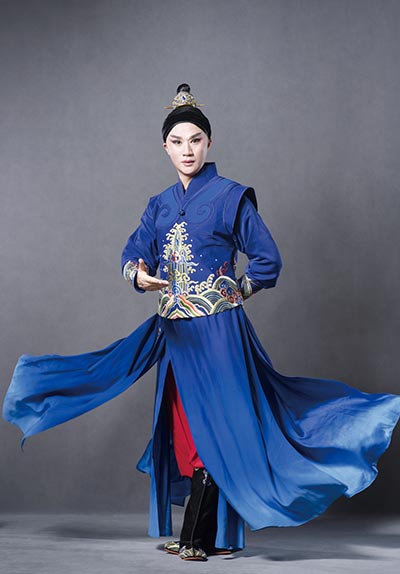Bringing old art form to new viewers
By Fang Aiqing | China Daily | Updated: 2017-10-26 07:21
 |
| Zhang Jun plays Hamlet in his Kunqu Opera adaptation of William Shakespeare's masterpiece. [Photo provided to China Daily] |
Going global
Kunqu Opera is not only seeing revival in China, but also gaining ground globally.
Prior to the Shanghai show of The Palace of Eternal Life, the Shanghai Kunqu Opera Troupe staged The Tale of the White Serpent of Leifeng Pagoda, another traditional play and some other classics at the Stavros Niarchos Foundation Cultural Center in Athens, Greece.
The 6,000 tickets for the three-day performances of the first foreign opera show at the newly opened theater were sold out three months in advance.
In November, Zhang's I, Hamlet, a contemporary Kunqu Opera play adapted from William Shakespeare's Hamlet, will be staged in South Korea, while next year there will be tours to Europe and the United States.
The play, produced in 2016 to mark the 400th anniversary of the deaths of Shakespeare and Ming Dynasty (1368-1644) playwright Tang Xianzu, offers a Chinese interpretation of life and death.
Meanwhile, besides the massive productions of traditional Chinese plays, experimental pieces of Kunqu Opera have also made their way globally.
Chair, adapted from the absurdist play The Chairs by French playwright Eugene Ionesco, has just been staged twice by the Shanghai Kunqu Opera Troupe in Albania. Previously, it has been performed in Russia and Japan.
According to Gu, the play is to tailor the opera form for a global stage.
"Western audiences are very familiar with the story. They are just curious about how we present it as well as our makeup and costumes."
The leading actress in Chair, Shen Yili, takes active part in producing the play, contributing her understanding of the story.
"Today, experimental pieces like Chair have more possibilities. I'm confident that Kunqu Opera can be presented well in this form," says Gu.
























